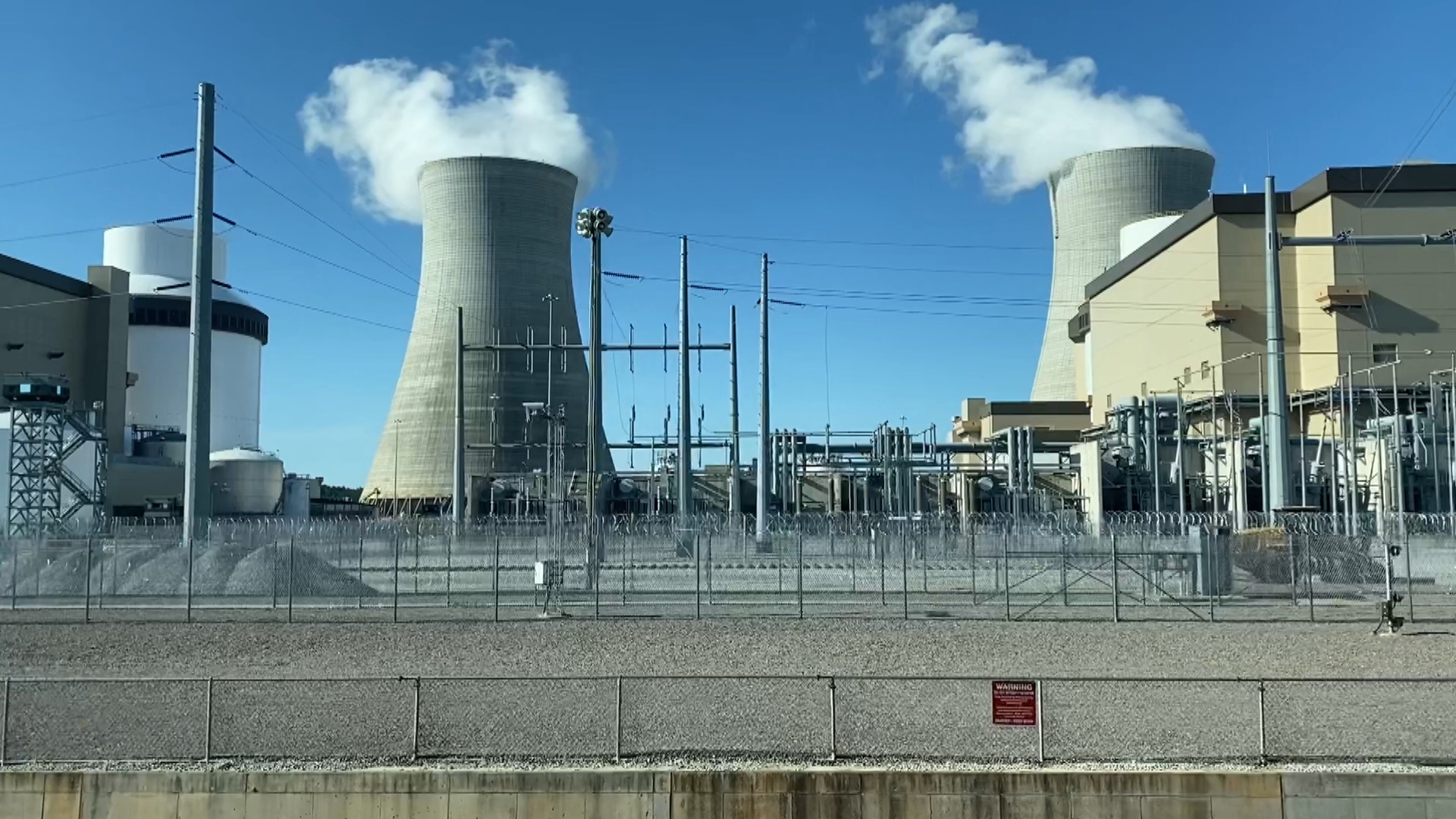BURKE COUNTY, Ga. — Georgia's Plant Vogtle is years behind schedule and billions of dollars over budget, but now, a report says Georgia Power customers could be paying more for the plant than they originally thought.
The 40-page document released Thursday covers several angles on the plant, from cost to construction. Patty Durand, one of the report's authors, heads up consulting company Cool Planet Solutions. She says the projected $14-a-month increase may not paint the full picture.
"People pay bills, not rates. And the rates make up less than half the bill, but when you add up all those other fees and charges, the bill is much, much larger," Durand said.
That's the central part of the report's argument against price.
Original construction prices totaled around $14 billion. The most recent estimates top $30 billion. Last year, the Georgia Public Service Commission allowed Georgia Power to pass more than $7.5 billion in remaining costs to its customers and causing a rate increase.
The report shows average Georgia Power rates are up between $34 and $35 since before the plant's Unit 3 went online. It's about $20 more than the projected increase, but Durand says that's because other fees are based on the rate. That could drive costs up more.
"So, whenever the rates go up, those other tariffs and fees go up. So that's where the missing money is," Durand explained.
Georgia Power says they're losing about $2.6 billion in total projected costs to shield customers from the responsibility of paying it. Unit 4 added about $8.95 to the average customer's bill, John Kraft, a spokesman for the company said.
"Although nuclear has a high cost to build, it offers extremely stable and predictable fuel and operating costs over the life of the units (expected to be 60 to 80 years), helping keep rates low for our customers in the long term," Kraft wrote in a statement Thursday.
Durand blames construction delays for the cost overruns. The report says lack of oversight meant crews had to re-install some parts of the plant, pushing back opening day and driving up costs.
"They were not protected from weather. There was no chain of custody," Durand said.
John Williams, Georgia Power's senior vice president over the new units, said Wednesday they faced construction delays because it was the first project of its kind in the United States.
"Any time you do something for the first time, you realize, 'Oh there might be a better way to do that.' Or, 'This doesn't quite work like we expected it to,' or, 'the design didn't.' So, that's why we test," Williams said.
The report also argues against building nuclear plants in the south due to severe weather.
"No one knows exactly where the line is for what the nuclear plant can withstand or not because these storms are record-breaking," Durand said.
"Our focus over the years has remained on safety and quality construction, and fulfilling our responsibility to our customers to provide clean, safe, reliable and affordable energy," Kraft wrote.
The report also takes aim at the Public Service Commission, and why they allowed construction to go forward.
“The PSC does not comment on reports we haven’t read, especially reports that have not been peer reviewed," they wrote in a statement.
Georgia Power sent the following statement:
Statement on Report: Georgia’s economy is growing - and growing quickly. The completion of the new Vogtle units will help us meet this demand and offers a new source of clean, reliable energy, available 24/7, for customers. We are proud of the thousands of American workers who were onsite day after day working to bring this project online to serve a growing Georgia. Our focus over the years has remained on safety and quality construction, and fulfilling our responsibility to our customers to provide clean, safe, reliable and affordable energy. With the completion of the units, and their exemplary performance so far, we have done just that.
Regarding Cost/Rate Impact:
At Georgia Power, we understand the impact the cost to build these new units has on customers and, from the beginning, we have worked to minimize costs for customers from this critical new energy asset through proactive steps such as the fixed price contract, collecting financing costs during construction and pursuing DOE loan guarantees.
- The Georgia PSC last year issued its order on our cost recovery for the project which helps lessen the impact for customers and honors the spirit of the decision we all made to move forward in 2017. Pursuant to the PSC’s decision, Georgia Power is not recovering approximately $2.6 billion in total projected costs.
- The month following Unit 4 achieving commercial operation, average retail rates were adjusted by approximately 5%. With the Nuclear Construction Cost Recovery (NCCR) tariff removed from bills, a typical resident customer using 1,000 kWh per month saw an estimated monthly increase of $8.95 per month. This follows the previous rate impact in 2023 following Unit 3 COD of $5.42 (3.2%).
- It’s also important to note that, although nuclear has a high cost to build, it offers extremely stable and predictable fuel and operating costs over the life of the units (expected to be 60 to 80 years), helping keep rates low for our customers in the long term.
Regarding the process:
The Stipulation was negotiated and signed by a diverse group of stakeholders representing the broad-based interests of our customer base – from organizations representing manufacturing industrial customers to retail residential customers, congregations and communities of faith, and the energy-using and consuming public as a whole.
Through the robust and open Vogtle Construction Monitoring (VCM) process (there were 29 semi-annual VCM proceedings) all issues raised by parties to the proceeding – including intervenors – were thoroughly documented and considered by the PSC.

